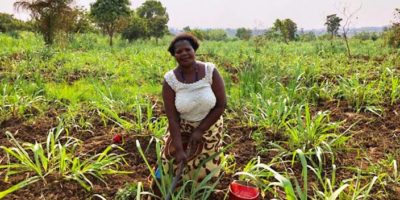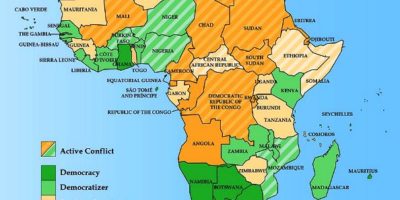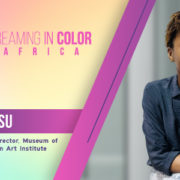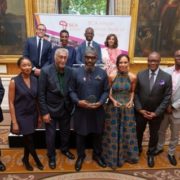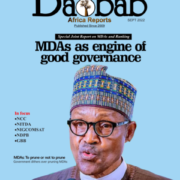The World Health Organisation -WHO and the United Nations Children’s Fund – UNICEF are calling on governments to support breastfeeding. In a joint statement released on Saturday by the two UN agencies to mark the beginning of the 2020 World Breastfeeding Week, the UNICEF Executive Director Henrietta Fore, and WHO Director-General Tedros Adhanom Ghebreyesus, said “Mothers need support – both to get started and to sustain breastfeeding.”
The World Breastfeeding Week takes place from 1st to 7th of August every year. It started in1992 with the aim to generate public awareness and support for breastfeeding and related issues.
The theme of World Breastfeeding Week 2020 is “Support breastfeeding for a healthier planet”. In line with this theme, WHO and UNICEF are calling on governments to protect and promote women’s access to skilled breastfeeding counselling, a critical component of breastfeeding support.
The two agencies noted skilled breastfeeding counselling services as a critical breastfeeding support women and families need, along with the information, advice, and reassurance they need to nourish their babies in the best way.
They stated that “Breastfeeding counselling can help mothers to build confidence while respecting their individual circumstances and choices”, Improving access to skilled counselling can also extend the duration of breastfeeding and promote exclusive breastfeeding, with benefits for babies, families and economies “Counselling can empower women to overcome challenges and prevent feeding and care practices that may interfere with optimal breastfeeding, such as the provision of unnecessary liquids, foods, and breast milk substitutes to infants and young children.”
The joint statement also noted that increasing rates of exclusive breastfeeding could save more lives and income. “Indeed, analysis indicates that increasing rates of exclusive breastfeeding could save the lives of 820,000 children every year, generating $302 billion in additional income.”
In this pandemic time, UNICEF and WHO unanimously call on governments to Invest, Train and Partner on women breastfeeding related issues. They seek the governments to do the following:
INVEST to make skilled breastfeeding counselling available to every woman. Ensuring availability of skilled breastfeeding counselling to every woman will require increased financing for breastfeeding programmes and improved monitoring and implementation of policies, programmes and services.
TRAIN health care workers, including midwives and nurses, to deliver skilled breastfeeding counselling to mothers and families.
ENSURE that counselling is made available as part of routine health and nutrition services that are easily accessible.
PARTNER and collaborate with civil society and health professional associations, building strong collaborative systems for provision of appropriate counselling.
PROTECT health care workers from the influence of the baby food industry.
The two top officials finally call for a united action on behalf of mothers and babies; “Together, through commitment, concerted action and collaboration, we can ensure that every mother has access to skilled breastfeeding counselling, empowering her to give her baby the best possible start in life.”
Exclusive breastfeeding
“Exclusive breastfeeding is feeding a child only on breast milk without water, other food or drink, but allows the infant to receive ORS, drops and syrups (vitamins, minerals and medicines)
WHO recommends exclusive breastfeeding from the first hour of birth up to 6 months of age, then continued breastfeeding along with appropriate complementary foods up to 2 years of age or longer. Mothers are encouraged to breastfeed their children for at least 1 year.
Benefits of Breast milk
WebMD gives benefits of breast milk to the child, thus: Breast milk contains antibodies that help your baby fight off viruses and bacteria. Breastfeeding lowers your baby’s risk of having asthma or allergies. Plus, babies who are breastfed exclusively for the first 6 months, without any formula, have fewer ear infections, respiratory illnesses, and bouts of diarrhea
According to WHOBreast milk provides all the energy and nutrients that the infant needs for the first months of life, and it continues to provide up to half or more of a child’s nutritional needs during the second half of the first year, and up to one third during the second year of life.
Do mothers adopt Exclusive Breastfeeding?
Exclusive breastfeeding has been promoted all over the world as the best food for the newborn, however, research has shown that 70 percent of mothers are still finding the adoption difficult.
A brief survey conducted by Baobab Media on exclusive breastfeeding in Nigeria, shows that more women know it’s the best way to go but are deterred as result of the inherent challenges, regardless of that, more women are likely to do exclusive. The survey result done on 24 mothers shows that 50 percent of mothers breastfed their children using exclusive method for 6months, 8.3 percent embarked on 12month exclusive, 8.3 percent did 3 months exclusive, 8.3 percent did 3 month breast milk and water while 25percent did full breast milk, water and baby formula.
Gains
Our finding shows that women who did exclusive breastfeeding agreed with saving enough money that would have gone on baby food and drugs.
Mothers who practiced exclusive view it as the best practice as their baby’s health is evident. Exclusive breastfeeding nourishes and provides the child with the best vitamins and minerals, protects the child from diseases and infections, aids the child’s growth and brain development. Research shows that children who are properly breastfed performs well in intelligence tests and are less likely to be overweight and may not be disposed to diabetes later in life. Women who breastfeed also have a reduced risk of breast and ovarian cancers.
Challenges
While they applauded it as the best way to go, they didn’t hesitate to list the numerous challenges involve, that include; constant breastfeeding, sleepless nights, weakness, in between meals and having to consume much food and drink, stress of carrying the baby often and anywhere you are and spending good money on nourishing food for the nursing mother. They admitted it best suits stay at home mothers or women who have their own businesses or women whose workplace has a daycare facility and may not be suitable for other career women who do not have access to such facility and opportunity.
Please note, the brief survey was done on educated middle class women, from southern Nigeria, who are in different walks of life, further study is required for a balanced reports.


